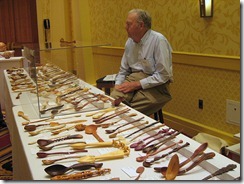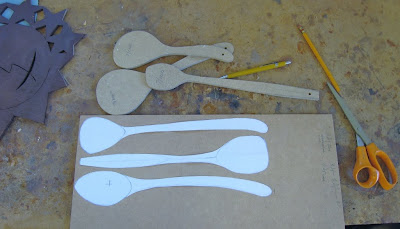Snow. Calling for up 7" more. Yups. May have to crank up the snow blower.
I just finished Stephen Batchelor's "Confession of a Buddhist Atheist" and am impressed by his writing style. Flipping back and forth between his life experience and the writings of the Pali Cannon, he presents a compelling narrative. I, like him, am compelled to acknowledge that I am certain about nothing. Really anything. My world view is dependent on my circumstances, the conditions that have already arisen. Given different circumstances, I would have a different world view. This is ennobling. I enjoyed the book and recommend it.
Robert Aitken (1917-2010)
 |
| A gentle reminder just how precious this life is. |
Robert Aitken was my teacher's teacher. He died yesterday. He had been in poor health for a while. That does not make it any easier for his family and those close to him.
I never met him but through his writings and the stories my teacher told. One story that I remember was that Aitken used to record his talks in a cassette tape recorder. One evening he noticed that the recorder had malfunctioned and failed to record his teisho. Later after everyone when to bed, he stayed up an sat in the zendo re-giving and re-recording his teisho to an empty zendo. The advantage of his dependance on his notes.
This must have been an odd scene to come on. I don't know, but this may have been one of his best Dharma talksr. It points to his dedication to spreading the Dharma in the Western world. He has done so much and now can rest.
We'll have to wait and see what blossoms out of all his hard work. I dedicate the merit of my practice to you, Robert Aitken, Dai Osho.
Zen is Everyday Life
Before taking up Zen, everyday life is just how life is lived. When you start to practice Zen, everyday life becomes a mystery, a thing unto itself. After ‘practicing Zen’ everyday life again is just how life is lived.
During the summer months my practice community is dispersed and we are involved in many family and social activities. I’m looking forward already to the cold, rainy and snowy month when my practice community will come together again.
As reported earlier, I recently spent some time with Barry Gordon, a spoon carver with over 30 year of experience. One thing that I picked up watching Barry was the importance of intentionality. This notion is still coagulating but here is what I've seen so far.
You could depend on the moment or "the wood" to inspire you as you formed the spoon. Stand in front of the bandsaw or the chopping block and start whacking away. I call this the "Michelangelo Subtraction Approach" - start removing wood and seeing what develops. Lately this has started to feel a bit to 'willy-nilly' and this feeling intensified after working with Barry.
Alternatively, you could inject more intentionality.
I've started to make patterns for my spoons. When thinking about what I want to accomplish, the drawing has been very helpful. As an activity unto itself, drawing connects me with my spoon making at times I can not be in the shop. Pattern making has already lead me to see design 'opportunities' I want to avoid using again. Notice the bottom pattern in the picture above. The curve in the handle looks graceful and suited to the size of the spoon. Using the pattern in fresh Red Oak, I now feel that the curve it too 'curvy' and the spoon feels funny 'in the hand'. I'll post a picture when done comparing spoon with pattern.
Another activity that adds intentionally is keeping a file of inspiring photos and clipping from which to draw ideas. My image file contains almost 800 images of spoons scoured from the web that I peruse from time to time, studying the work of others, some positive some as lessons of what not to do.
Sweet 'hand-feel' of a spoon is the ephemeral quality of comfort and connection you get when holding a well crafted spoon. I've held and made spoons that lack this 'hand-feel' or a 'spooniness' quality.
Which are you? A Michelangelo who removes everything that is not the spoon or someone who injects some measure of intentionality into you carving?
The more I practice the more I realize just how little I know about Zen. I'm finding talking about Zen ain't too helpful. Sometimes a lot of what passes for Zen is nothing but critique. Like a movie critic, critiquing life. Counter productive yet the social norm. Acceptably missing the point!
I must confess that I don't know a thing about Zen. I don't know why I practice. I can't remember even why I came to the practice. Maybe it is transient, but I find my desire to hold ideas in my mind weakening even more. I have no idea about Zen and am comforted by that. Weird confession. The practice being so nebulous. To say it is "everything" or "your practice is your practice" is a cop out. I sit. That is about all I can say for sure.
There. -- Your turn.
Wooden Spoons & Zen
We worked in his shop and talk about design, technique and materials.
Here Barry is pictured roughing out a Buckthorn spoon. He has developed a notion of using the band saw as a carving implement. Barry uses a highly tuning the band saw with a few custom features. He uses special blades with high beam strength and frequently applies a wax lubricant to the blades. He has optimized his dust collection with custom shrouds under the table. He has filled in the miter slot and made a UHDP insert for the throat. A link belt and a custom study base that together all but eliminate any vibration. Extra lighting and a slow steady hand and a “roughed out” spoon is closer to its final shape.
Barry and his wife Barb, were gracious hosts and shared there home and dinner table with me. The conversation was delightful.
Now we’ll have to see if I absorbed anything.
Later in the week Barb, Barry and I drove the 300 miles or so to the American Association of Woodturners national convention in Hartford CT. We had some of the best pizza ever at a little place call Joe’s Pizza just outside Hartford.
The main reason for the trip to Hartford was to see and meet Norman Stevens the wooden spoon collector and see his “Gathering of Spoons” (PDF of catalog) exhibition.
Norman Stevens is a retired university librarian who has a long history of collecting and supporting spoon makers. His latest project, the recently renamed “A Gathering of Spoons”, is a collection of spoons by makers mostly but not exclusively from America. It was a real treat the see and hold spoons by Jogge and Wille Sundqvist. See so many spoons by so many makers all in one spot was inspiring. Below is a series of images I took original thinking I’d create a panoramic of the collection but I think it would be better to just publish them and try later to make a panorama.
The Human Spirit
I'd like to point you to Lucy Loomis, a photographer, who has posted to Flickr a set of her visit to Dan Santos' woodworking shop. I don't know either of these people yet their sharing has inspired me. We will see what develops. Here is a link to the set and a sample.
The Seven Points of Practice by Uchiyama Kosho Roshi
1. Study and practice the Buddha-dharma only for the sake of the Buddha-dharma, not for the sake of human emotions and worldly ideas.
2. Zazen is the most venerable and only true teacher.
3. Zazen must work concretely in our daily lives as the two practices (vow and repentance), the three minds (magnanimous mind, parental mind, and joyful mind), and as the realization of the saying, "Gaining is delusion, losing is enlightenment."
4. Live by vow and root it deeply.
5. Realizing that development and backsliding are your responsibility alone, endeavor to practice and develop.
6. Sit silently for ten years, then for ten more years, and then for another ten years.
7. Cooperate with one another and aim to create a place where sincere practitioners can practice without trouble.
Trick or Treat
Today we get a history lesson. "All Souls' Eve" has its origins in ancient Europe. Culture to culture, eventually to England where "good-hearted celebrators dressed as ghouls or ghosts went "a-souling" door to door... to beg food for the poor."
Sadly, yet another communal celebration bastardized by capitalism.

.jpg)




